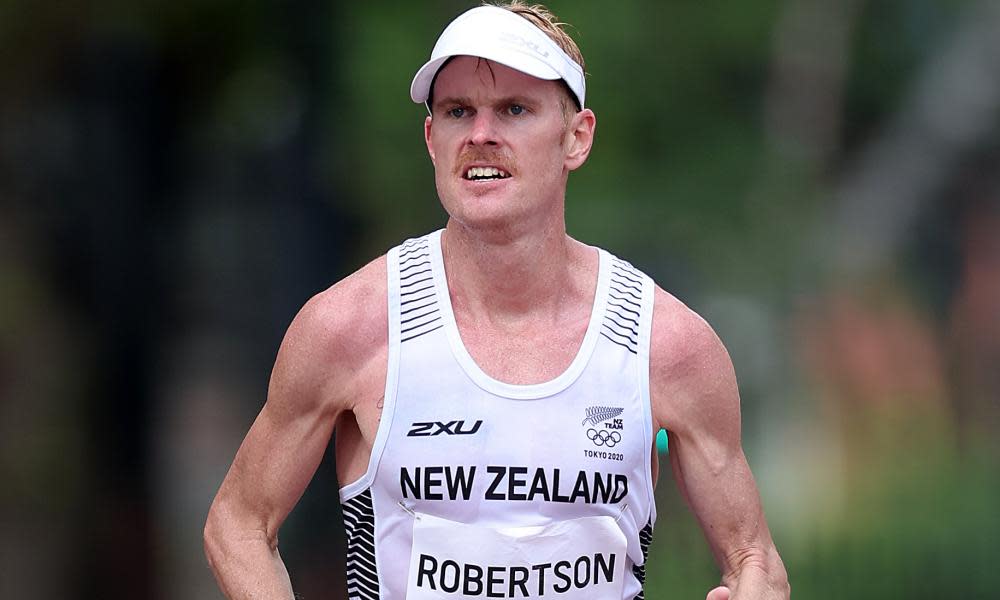Distance runner given eight-year ban for doping after Covid story unravels

The New Zealand distance runner Zane Robertson has been given an eight-year ban for doping after his claim that he was mistakenly injected with EPO after seeing doctors for a Covid jab was exposed.
Robertson, who won a bronze medal at the 2014 Commonwealth Games and has competed in the past two Olympics, initially tested positive for EPO at the Great Manchester Run in May last year – which left him facing a four-year punishment.
However, the 33-year-old tried to escape censure by telling the authorities that the banned drug had only got into his body after he visited a Kenyan medical facility to get a Covid-19 vaccination – only to be given treatment for Covid instead.
Download the Guardian app from the iOS App Store on iPhone or the Google Play store on Android by searching for 'The Guardian'.
If you already have the Guardian app, make sure you’re on the most recent version.
In the Guardian app, tap the Menu button at the bottom right, then go to Settings (the gear icon), then Notifications.
Turn on sport notifications.
Robertson, who holds the New Zealand national record at the half marathon (59min 47secs) and marathon (2:08:19), also claimed that he had told the doctor that he was an athlete who could not be given anything on the prohibited list.
Robertson also supported his evidence with sworn affidavits from two Kenyan doctors, but his case began to unravel when the vice-president of the medical facility in Kenya told anti-doping investigators that the marathon runner was “not administered EPO at the facility, that he had not attended the facility on the alleged date … and the patient number on the notes was not Mr Robertson’s.”
“In light of the additional evidence collected and filed by Drug Free Sport New Zealand, Mr Robertson has chosen not to rely on the evidence he originally filed and no longer seeks to contest the sanction for the anti-doping rule violations,” the 14-page report into his case stated.
The sanction means that Robertson, who retired in February, cannot compete again until 2030.
“His actions go against everything the New Zealand Team stands for,” said Nicki Nicol, the chief executive and secretary-general of the New Zealand Olympic Committee. “We condemn all forms of doping. Every athlete has the right to compete on an even playing field and Robertson’s actions have undermined the integrity of sport.”
Prior to the 2016 Olympics, where he came 12th in the 10,000m, Robertson had expressed his frustration at doping in Kenya where he had spent much of his career training. “It’s disturbing that I can see these things unfolding before my eyes yet those athletes continue to race on,” he said.

 Yahoo News
Yahoo News 
